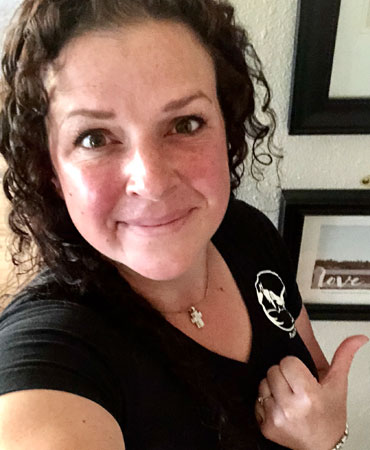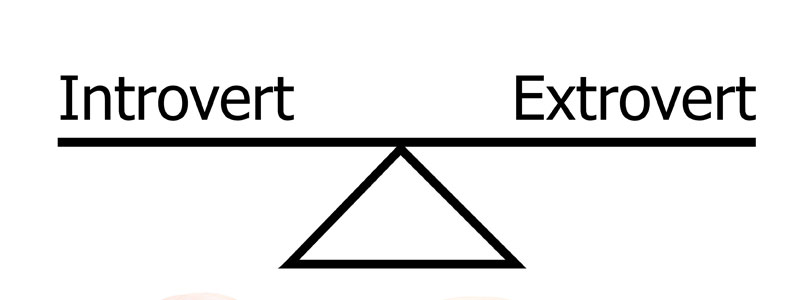Personality types definitely come into play when it comes to one’s professional environment. Some of your coworkers may talk too much. Meanwhile, “Tom” seems like he never has anything to say. And then there are those who don’t fit in a particular category and are a little harder to crack: outgoing introverts who seem chatty, yet actually recharge by being alone.
When it comes to professional life, how do these complexities of human personality manifest in the workplace? What does it mean for relating to one another in collaboration? Is one superior to the other? Do extroverts typically excel in management positions over introverts?
What’s the difference between an introvert and an extrovert?
Many could jump the gun and make a lot of assumptions about others when it comes to defining “introvert” and “extrovert.” However, the reality is that there is most definitely a spectrum.
This is not just a matter of quiet or loud but how one “recharges” or gains energy. Extroverts feed off the energy of those around them and need social interaction to process stimuli. Introverts are the opposite and need time alone in order to get themselves to a place of contentment.
Do extroverts make better leaders?
96% of managers identify themselves as being extroverted. 65% of senior executives will even go as far as to say that being introverted is a disadvantage.
However, there is substantial research and resources out there that make a good fight for introverts in positions of power. Quiet: The Power of Introverts in a World That Can’t Stop Talking by Susan Cain is a fantastic book a friends’ mom introduced me to over five years ago.
Cain helps break down the concept of introverts and extroverts far further than “outgoing” or “shy” and helps readers understand each in both personal and professional settings. She has had multiple TED talks and even created an institute to empower introverts in their organizational performance.
The common myth says that extroverts are better leaders than introverts. With tech boom founders like Jack Dorsey of Twitter, Evan Spiegel of Snapchat, and lizard-human, Mark Zuckerberg (I kid), of Facebook, we are realizing that this simply is not true.
Adam Grant, the brainpower behind “5 Myths About Introverts and Extroverts” linked above, found that extroverts and introverts were equally successful overall in a professional environment. However, they succeeded in different ways when it came to leadership.
While one cannot deny that people are more easily attracted to extroverts, leading to more extroverts in managerial roles, they are certainly not better leaders than introverts.
What strengths and weaknesses do introverts and extroverts possess as leaders?
Building off of this same study, findings showed that passive employees had 16% higher profits when led by an extrovert. With proactive employees who voiced their opinions to  make the work process better, units led by extroverts had 14% LOWER profits.
make the work process better, units led by extroverts had 14% LOWER profits.
Extroverts thrived in leading those “easily led” in a sense, yet suffered when it came to communication with other outgoing individuals. Where enthusiasm and assertiveness certainly came into the spotlight, so did hogging that spotlight. The proactive employees who simply wanted to communicate and share their ideas were left discouraged.
On the other hand, introverted leaders validated initiatives and listened actively and critically.
A message to introverts:
You are entitled to be who you are. OWN it.
- Get comfortable with who you are.
- Stop apologizing or pretending to be something you are not.
- Stay connected; avoid over-isolation.
- Strategically prioritize your alone time. This could look like scheduling it after the days you know you will have a boatload of interactions.
- YOU HAVE SO MUCH TO BRING TO THE TABLE AND ARE A VITAL COMPONENT OF SUCCESS.
- YOUR IDEAS MATTER.
A message to extroverts:
Consider and value DIVERSITY and VERSATILITY; “opposites attract;” Yin and Yang.
- Celebrate all people and personality types instead of seeking to change them. Collaborate with different kinds of people, not just the most vocal.
- Respect other extroverts like yourself and introverts alike; appreciate the unique ways they can sharpen one another and reach goals together that would be impossible apart.
- Seek to draw out others’ strengths.
- Slow down + L I S T E N in order to actually hear, not just to respond.
In summary: Complement instead of compete. Celebrate instead of tolerate.
Collaboration, collaboration, collaboration. Together, we can rule the world.
Extroverts ABSOLUTELY need introverts. Introverts ABSOLUTELY need extroverts. The world, and business, and the workplace ABSOLUTELY need you both.
I’m personally an outgoing introvert, and I’ve definitely had to learn the power of saying “no” and what it looks like to have boundaries. Without “me” time, overstimulation faithfully follows every time.
LET’S TALK! Are you an introvert, extrovert, or ambivert; a mix of the two? Let us know! What’s your superpower? What do you bring to the table? What are some examples of different personality types you’ve seen in the workplace, and how different individuals coming together made an impact?
Life is a balancing act, as one’s professional environment. Just like a gorgeous ballad is composed of different instruments and vocal ranges, let’s join together in a harmonious, unified song.





 make the work process better, units led by extroverts had 14% LOWER profits.
make the work process better, units led by extroverts had 14% LOWER profits.




0 Comments